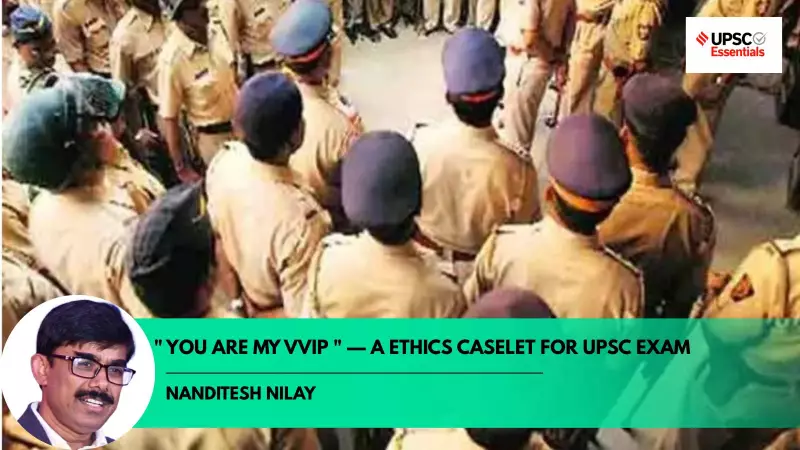
In the demanding world of civil services, ethical dilemmas often test the mettle of even the most seasoned officers. A thought-provoking case study has emerged that puts a police officer's professional judgment under the microscope, creating ripples in administrative circles and among UPSC aspirants.
The Critical Incident That Sparked Debate
The scenario unfolds with a police officer stationed at a public event where a Very Important Person (VIP) is scheduled to appear. Suddenly, an urgent situation develops nearby that demands immediate police intervention. The officer finds themselves at a crossroads: remain with the VIP as per protocol or respond to the emergency that threatens public safety.
The Core Ethical Conflict
This situation presents a classic conflict between two fundamental responsibilities:
- Protocol Adherence: The officer is bound by strict security protocols requiring continuous protection of the VIP
- Public Service Mandate: The police officer's primary duty to protect and serve the public at large
Broader Implications for Civil Servants
This case study transcends the immediate dilemma and raises crucial questions about:
- Priority Setting: How should civil servants balance competing demands on their time and resources?
- Decision-Making Framework: What ethical principles should guide such critical choices?
- Accountability Measures: Who bears responsibility when protocol conflicts with public need?
Essential Learning for Aspiring Officers
For those preparing for civil service examinations, this case offers invaluable insights into real-world administrative challenges. It demonstrates how theoretical knowledge of ethics must be applied in practical, high-pressure situations where textbook solutions may not suffice.
The officer's ultimate decision and its consequences serve as a powerful lesson in leadership, responsibility, and the complex nature of public service.
Why This Matters Beyond the Classroom
This ethical dilemma resonates beyond examination halls, touching upon larger questions about:
- The balance between individual security and collective welfare
- The evolution of protocol in changing social contexts
- The human element in bureaucratic decision-making
As civil services continue to evolve, such case studies provide crucial learning opportunities for current and future administrators navigating the complex landscape of public service ethics.





